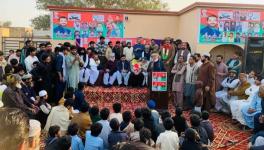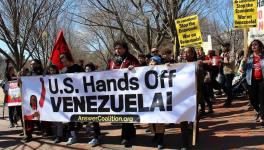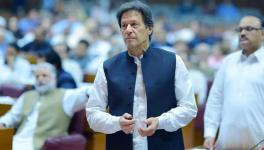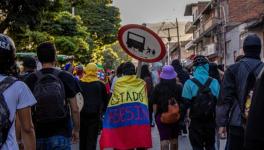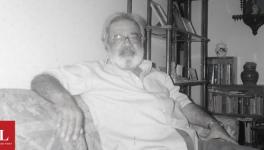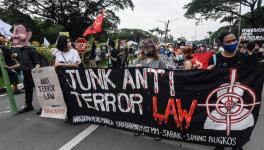Pakistan: Widespread Condemnation of Govt Ban on PTM
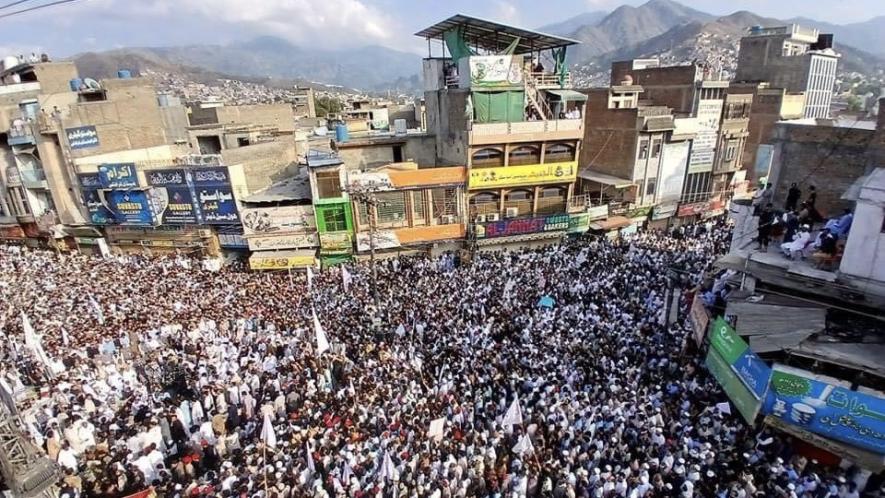
A massive rally of PTM in July. Photo: PTM
Progressive groups as well as mainstream political parties in Pakistan have condemned the federal government’s move to ban the Pashtun Tahaffuz Movement (PTM) and its violent attacks on peaceful PTM gatherings.
The order to ban PTM was issued on Sunday by the Interior Ministry of Pakistan. The order claimed that the PTM was “engaged in certain activities which are prejudicial to the peace and security of the country.” The ban is under section 18 of Pakistan’s anti-terrorism act of 1997.
According to reports, security forces attacked PTM workers on Wednesday, October 9 gravely injuring several people when they were gathering for the Pashtoon Qaumi Jirga (Pashtun National leadership meeting) in Khyber Pakhtunkhwa (KP) province. PTM had called for the meeting to be held on October 11 and despite the ban on the organization, it had decided to go ahead with the gathering and begin preparations.
The ban on PTM comes after successive governments in the country have accused it of working on behalf of foreign agents and indulging in activities that help violent non-state actors. PTM has always denied such allegations.
PTM was formed in 2014 as a peaceful movement to demand human rights for the Pashtun people and accountability in the cases of the thousands of missing persons from Pakistan’s KP and Balochistan provinces. It has opposed the violence unleashed by the state as well as imperialist interventions in the region and for years has mobilized to oppose militant groups’ actions in the region such as the Taliban.
Due to its critical stance on the violence unleashed by Pakistan’s military and security forces in the name of fighting terrorism, its leaders often face state persecution. Ali Wazir, former member of Pakistan’s National Assembly (MNA) and PTM leader, has been jailed several times since 2014. Manzoor Pashteen (29), its founder, has also been in and out of Pakistani jails on charges related to terrorism and sedition.
According to Dawn, last week, the police attacked and burnt a PTM camp in the Khyber tribal district in KP. When confronted, the provincial government led by the Pakistan Tehreek-e-Insaaf (PTI) claimed that it had received direct orders from the federal government to dismantle the PTM camps. Though the federal government denied it gave such orders, Dawn claimed it has the copy of the same.
The ban is seen in the context of the failure of the Shehbaz Sharif-led central government’s failure to curb the rising violence in the country, including in the KP and Balochistan provinces. In the wake of its failure, it has silenced the voices which raise questions about its failure. Before banning PTM it had planned to ban the main opposition party PTI.
PTM is a non-violent civil rights group
The Human Rights Commission of Pakistan (HRCP) condemned the banning of PTM in a statement on X. Demanding immediate withdrawal of the order, it stated that the PTM is “a rights based movement that has never resorted to violence and always used the framework of the constitution to advocate its cause.”
HRCP mentioned that the Pakistani government’s “extreme decision was neither transparent nor warranted.”
On Wednesday, leader of the opposition in the Pakistani parliament, PTI MNA Omar Ayub Khan condemned both the ban order and the police attacks on the PTM gatherings saying that “declaring PTM a proscribed organization and then tear gassing its members is not the way for political inclusion or bringing about peace in the province.”
Khan claimed such moves will further alienate the people of KP and Balochistan provinces where PTM has a strong popular support base.
Mohsin Dawar, former member of the National Assembly and now the head of the National Democratic Movement (NDM), also condemned the banning of PTM by calling it a message to all families of the missing persons and human rights defenders that “the state doesn’t believe in peaceful struggles.”
Left-wing Awami Workers Party (AWP) stated that the move of banning PTM “will serve only to antagonize and alienate the war-torn Pashtun people while providing space for the far-right militancy to thrive.” It called PTM a “genuinely organic people’s movement that speaks to the suffering and brutalization of the pashtun people.”
AWP condemned the Pakistani government led by the Pakistan Muslim League-Nawaz (PML-N) and the Pakistan People’s Party (PPP) claiming it has completely surrendered in front of the Army by “criminalizing a non-violent civil rights movement.”
AWP said it will continue to support PTM and asked the people to rally behind it before “the wave of establishment-sponsored politics of hate engulfs all of Pakistan society.”
Dr. Taimur Rahman, leader of the Mazdoor Kisan Party warned the government that it was “making a very serious mistake by banning the PTM.” He said that PTM may be against the government and military but they have “nothing to do with any kind of terrorism” rather “they are a response to the terrible conditions of the Pashtuns owing to the clash between the state and Taliban.”
Get the latest reports & analysis with people's perspective on Protests, movements & deep analytical videos, discussions of the current affairs in your Telegram app. Subscribe to NewsClick's Telegram channel & get Real-Time updates on stories, as they get published on our website.










